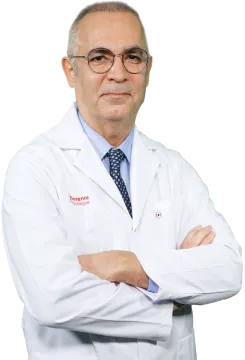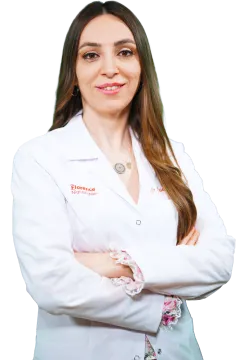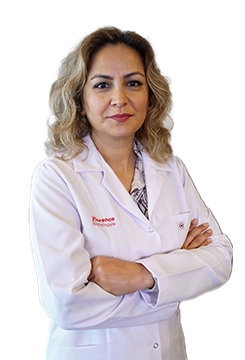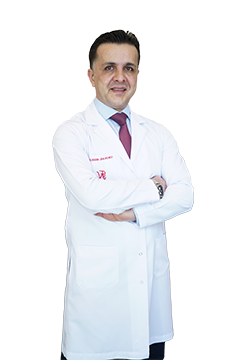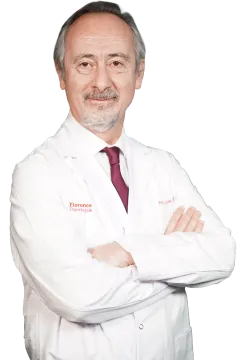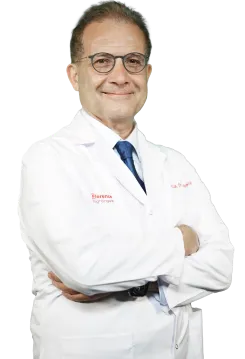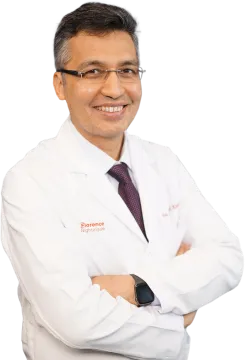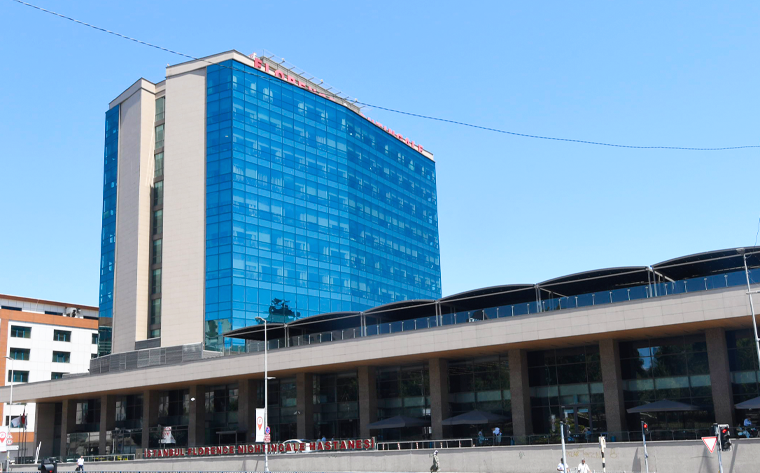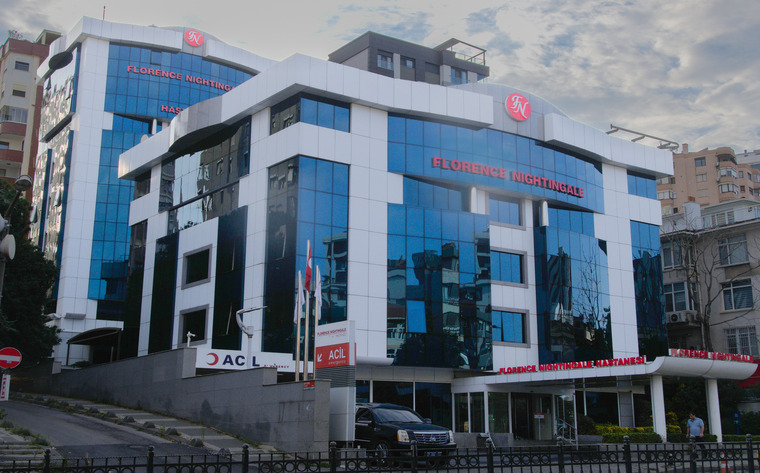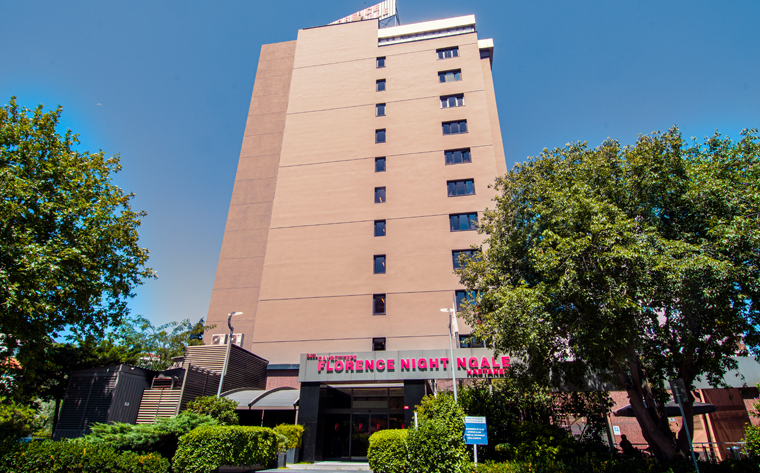
What is Gastroenterology?
In the gastroenterology department of Florence Nightingale Hospitals, the diagnosis and treatment of health problems that occur in the digestive system organs such as the stomach and intestines, and in organs such as the liver, gallbladder and pancreas, known as organs that help digestion, are carried out by a team of physicians who are experts in the field.
Diagnostic Methods in Gastroenterology and Florence's Approach
Gastroenterology specialists deal with the diagnosis and treatment of all kinds of diseases related to the digestive system. Early detection of diseases is of great importance in terms of treating them before they progress. For this purpose, Florence Nightingale Hospitals gastroenterology department consists of a team of specialist physicians who listen to patients' complaints and combine their experience and knowledge with the possibilities of modern medicine and technology.
Diagnostic Methods in Gastroenterology
The most effective imaging method used in both diagnosis and treatment in gastroenterology is endoscopy. Endoscopy, which is formed by combining the words endo and scopy, is the name given to the imaging of the inside of the body with the help of specially developed optical devices. It is called by different names such as gastroscopy and colonoscopy depending on the area imaged. The main diagnostic methods used in the gastroenterology department can be listed as follows:
Esophagogastroduodenoscopy (EGD): Esophagogastroduodenoscopy is an endoscopic procedure that allows examination of the upper part of the gastrointestinal tract.
- Colonoscopy: A colonoscopy is an endoscopic procedure that allows visualization of the entire large intestine.
- Endoscopic Retrograde Cholangiopancreatography (ERCP): ERCP is a procedure used to diagnose liver, gallbladder and pancreas diseases.
- Endoscopic ultrasound (EUS): EUS is a minimally invasive procedure that uses sound waves to create images through a thin, flexible tube (endoscope) inserted into the gastrointestinal tract.
- Liver biopsy: Liver biopsy is a procedure performed to make a definitive diagnosis in cases of liver diseases of unknown cause and in cases of liver masses.
Common Diseases Treated in Gastroenterology
The digestive system is one of the most important systems that allows the body to use the energy it receives from food. Sometimes, various diseases can occur in the digestive system organs and if these diseases are not treated early, they can cause negative results. The main diseases treated in the gastroenterology department can be listed as follows:
- Reflux: It occurs when the muscle layer in the lower part of the esophagus, where it meets the stomach, becomes thick and cannot function as a valve.
- Ulcer: Occurs in the stomach or duodenum. It is the formation of a wound due to the loss of integrity of the stomach mucosa for various reasons.
- Gastritis: It is the inflammation of the gastric mucosa located on the inner surface of the stomach.
- Stomach cancer: It is known that the H. pylori bacteria, which is not treated in the early stages, has an effect. It is a type of cancer that progresses insidiously and can metastasize rapidly.
- Colon and rectum cancer: These are cancers that occur in the parts of the large intestine called the colon and rectum.
- Cirrhosis: It is the deterioration of the normal structure of the liver and the formation of nodules due to any chronic liver disease.
Treatment Methods in Gastroenterology and Florence's Approach
In the gastroenterology department of Florence Nightingale Hospitals, digestive system diseases are treated by specialist physicians in the field. In stomach disorders such as reflux, gastritis and ulcers, antibiotic treatment is used in addition to stomach acid regulating drugs if deemed necessary by doctors. In addition, foreign bodies, stones and polyps in the digestive system organs are successfully removed. The expert staff of Group Florence Nightingale Hospitals takes a patient-centered approach in the treatment of diseases and benefits from the opportunities of modern medicine and advanced technology. The main treatment methods used in the gastroenterology department can be listed as follows:
- Sclerotherapy, heat probe and band ligation application: The process of administering medication into the vein with the help of injection to stop bleeding and closing the vein from the inside is called sclerotherapy. It is widely used in bleeding in the digestive system. Another method used in bleeding in the lower and upper digestive system is the heat probe method. With this method, the bleeding vein can be burned and the bleeding can be stopped. Band ligation application is also a method that aims to stop bleeding with the help of elastic bands, especially in hemorrhoid and esophageal bleeding.
- Balloon and Maloney bougie dilatation: In esophageal strictures, a balloon is pushed into the area where the stricture is located with the help of an endoscopy device and the narrowing is opened by inflating the balloon in the area where the narrowing is located. Another method used in esophageal strictures is Maloney bougie dilatation. During this procedure, Maloney bougies are used to open the narrowing.
- Stent application: Narrowing and blockages may occur in the digestive system organs due to various reasons. In cases of cancer-related stenosis, it is possible to open the vessels with stent application.
- Percutaneous endoscopic gastrostomy: In cases where it is not possible for patients to be fed orally, a tube known as a feeding tube is inserted into the patient's stomach with the PEG method.
- Polypectomy: Polypectomy is the process of removing protruding formations in the digestive system, in other words, polyps.
- Sphincterotomy: The procedure that allows the opening of the obstruction by cutting the sphincters in pancreatic and bile duct obstructions is known as sphincterotomy.
- Balloon enteroscopy: Enteroscopy is the name given to the examination of the small intestine. During the procedure, single-balloon or double-balloon devices are used. The procedure is performed by entering through the mouth or anus, depending on the area to be examined.
- Endoscopic mucosal resection (EMR) and endoscopic submucosal dissection (ESD): Both methods are the process of removing polyps in the digestive system with advanced technology.
- Peroral endoscopic myotomy (POEM): In some cases, loss of function may occur in the muscles where the esophagus meets the stomach. As a result of this situation, various problems, especially difficulty swallowing, may occur. The POEM method is the process of cutting the muscles located under the esophagus and responsible for the passage of food.
What are the Health Technologies Used in Gastroenterology?
Florence Nightingale Hospitals gastroenterology department staff consists of physicians specialized in advanced endoscopy and interventional gastroenterology.
Some of the health technologies used in gastroenterology can be listed as follows:
- Endoscopic ultrasound (EUS): It is the imaging process of the digestive system performed by placing an ultrasound probe at the tip of the endoscopy device. It provides great convenience, especially in imaging the pancreas.
- Laser ablation treatment: It is a method that allows laser treatment of strictures in the esophagus.
- Esophageal and anal manometry: Esophageal manometry to understand the cause of dysphagia in patients with dysphagia.
- Chromoendoscopy: A procedure that allows detailed visualization of tissues by administering contrast material to the digestive system with the help of an endoscopy device.
- Confocal laser endomicroscopy: An advanced technology found in only a few healthcare institutions in the world that allows diagnosis when it comes into contact with tissues.
- Stomach balloon placement and stomach reduction operations: Stomach balloon placement and endoscopic stomach reduction operations used in the treatment of obesity and some types of diabetes.
- Gastric Botox: A painless procedure of gastric Botox injection performed through the mouth with an endoscope.
Why Should I Choose Florence in Gastroenterology?
Early diagnosis of digestive system diseases and implementation of a comprehensive treatment program greatly increases the comfort of life of patients. Florence Nightingale Hospitals' expert staff acts with a patient-centered approach and provides rapid and comprehensive diagnosis services at an early stage.
Gastroenterology Team Specialties and Special Interests
The gastroenterology team consists of experts in advanced endoscopic applications and interventional gastroenterology. In addition, diseases occurring in organs such as the liver, stomach and intestines are followed by doctors who specialize in these organs.
Its Relationship with Other Sciences from a Multidisciplinary Perspective
The gastroenterology department works with a multidisciplinary approach, especially with departments such as internal medicine, urology and oncology.
Why is there a multidisciplinary perspective in gastroenterology?
The first clinic that patients with stomach and intestinal disorders usually go to is the internal medicine department. If the internal medicine specialists who perform the initial examination deem it necessary, the patient is referred to the gastroenterology department. In addition, the gastroenterology and oncology departments work together in digestive system cancers.
